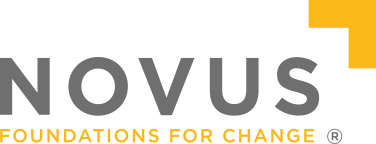Using creativity as a platform for positive change during this time
Adult Provision

Sarah Hartley, Novus Operational Lead for Creative Arts, Enrichment and Families
"People and communities around the world are being impacted by the current COVID-19 pandemic. These are unprecedented times and we face many challenges, both in our personal and working lives. But with challenges also come opportunities. We are having to adapt the way we think, the way we work, we need to think innovatively in order to continue to do what we do.
As someone who works in the justice sector, supporting prisoner rehabilitation through the creative arts, enrichment and family engagement, I have seen first-hand the impact of lockdown on prisons, prisoners and the organisations we work with. Current circumstances have meant we have had to devise different ways of engaging with our learners.
Access to, and engaging with, the creative arts is something that can be hugely beneficial when prisoners are confined to their cells and in isolation. Creative arts are inclusive, easily accessed by people of all ages and abilities. You don’t have to be an expert in a skill to enjoy being creative, simply the action of ‘having a go’ and accomplishing something can be enough to improve a person's physical and mental well-being.
Creative activities are integral to the opportunities that we are producing across Novus to engage with our learners from afar. We are working together with creative artists and cultural organisations to find creative ways to keep people connected during a pandemic that keeps us apart.
We have had to adapt our ways of working and think outside the box, and I have been amazed and inspired by what our teachers and partners have done to enable our learners to keep learning. Partners like Koestler, Music in Prisons, White Water Writers and Sing Inside have developed adaptive offers that brings the classroom to the cell.
One major project we were just about to start work on when we went into lockdown was with Tate Modern. Learners in all our establishments and in all curriculum areas were invited to take part in the project, which would culminate in a showcase at the Tate Modern that illustrates the ways in which engagement in creative activity supports rehabilitation.
The project gives learners the opportunity to consolidate the skills they have learnt within their curriculum areas and apply them to a live brief. An integral part of the brief is the supporting evidence that will document the creation of the pieces along the way to show the learning journey. This positively shows learners what they are capable of, and have, achieved. It is this thinking, developing and documenting of ideas, sketches, writing, that we are encouraging our learners to work through within their cells, which we can then develop and create once we are able to come together again.
Titled ‘A Future I Can Love’, we produced an in-cell project brief that encapsulates the key elements of the main brief and gives the learners a starting point. Our teachers have asked their learners what the title means to them, their family, their community and the world; to think about poetry and images that they could use. And to think about the current pandemic, the NHS, carers and how people are responding to the crisis. What do they think the future will look like? They can then develop their ideas with sketches, written word, poetry, music.
The process of working to achieve an end goal, regardless of realizing the end piece, provides opportunity for positive engagement, which can support self-esteem, confidence, attitude, commitment, motivation – all elements which are integral to positive changes.
Creative activities support learners on many levels - it offers them wellbeing support; acts as a bridge with their family; supports engagement in education; provides ‘soft skills’ employers look for and so can be a platform to employability; and can be used as a vehicle to support SEND learners. It raises people’s aspirations and has a positive impact on rehabilitation. The response we have had from our learners, our prisons and our partners has been overwhelmingly positive during this period and we continue to develop and grow our activities.
As with all educational and enrichment activities, there isn’t a one size fits all and we spend time and care working with local level arrangements within the prison sites and aligning our offer to these in order to enable wider participation. These arrangements also enable us to consider and bring in differentiated tasks for learners, so we are continuing to meet the needs of learners who we know will welcome these new opportunities. Knowing what works, enables us to refine our offers as we progress through this unknown period.
Creativity offers a platform to support and enable opportunities for change, whatever that change maybe, whilst also bringing new experiences to individuals, so in these circumstances is a way to continue to support a rehabilitative culture."


